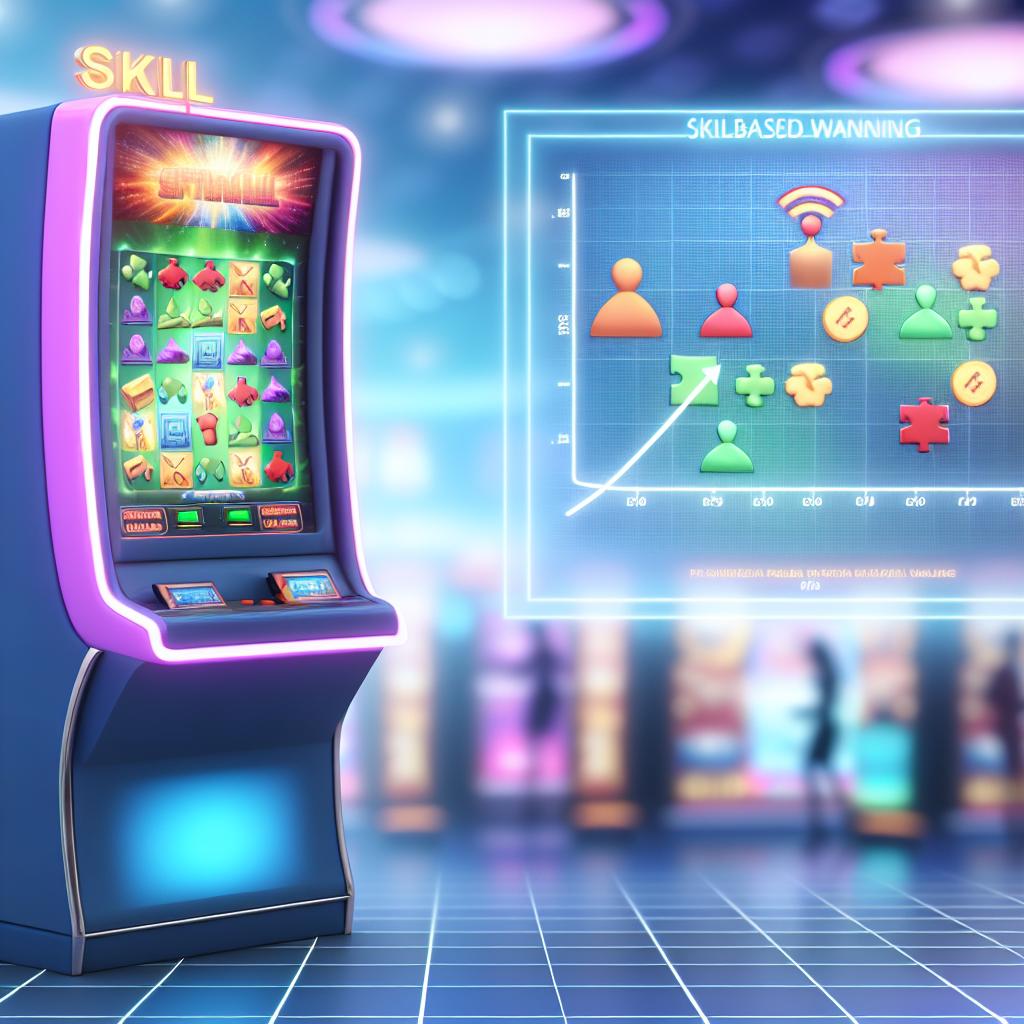Understanding Skill-Based Slot Machines
In recent years, skill-based slot machines have emerged as an innovative addition to the casino gaming landscape. These machines aim to attract a new demographic of players by incorporating elements that are not solely reliant on chance. This hybrid approach blends traditional slot machine mechanics with elements often found in video gaming, seeking to enhance player engagement and retention.
The Mechanics of Skill-Based Slot Machines
Traditional slot machines operate on a random number generator (RNG) system, meaning that the outcomes are entirely based on luck. In contrast, skill-based slot machines integrate elements that allow player actions to influence the outcome to a certain extent. While these games still feature RNG components, they might include skill-based bonus rounds or tasks. Such tasks could involve solving puzzles or completing challenges that resemble video games.
Skill-based machines bring a new layer of interaction, which distinguishes them in a saturated market of games of chance. These interactions often resemble the fast-paced action and problem-solving elements found in popular video games, providing a familiar platform for younger players who have grown up in a digital era dominated by gaming. As a result, they offer not just the possibility of winning money, but also the satisfaction of using skill and strategy to achieve a positive outcome.
Regulatory Considerations
Skill-based slot machines have sparked discussions regarding regulatory frameworks, as they differ from standard gaming machines. Regulatory bodies need to assess how these machines fit into existing gambling laws. The primary concern lies in defining how much a player’s skill truly affects the game’s outcome compared to the traditional chance element. Casinos must ensure that these machines adhere to regulatory guidelines designed to maintain fair play standards.
Regulators have the tough task of distinguishing between skill and chance in these new gaming devices. They need to quantify the skill element to ensure fair play and protect players from misleading advertising. The integration of skill must be clearly defined so that players understand whether they are engaging in gambling, gaming, or a combination of both. Furthermore, developing an adequate framework for these machines necessitates collaboration between game developers, casino operators, and regulators to balance innovation with player protection.
Player Demographics
Skill-based slot machines are primarily targeted at younger audiences who have grown up with interactive video games. By blending gambling with skill elements, casinos aim to appeal to millennials and younger generations who seek more interactive and engaging gaming experiences. This approach contrasts with the static nature of conventional slot machines, which often do not hold long-term appeal for these demographics.
This shift indicates a broader trend in the gaming industry: meeting the demands of an audience that values customizability and personal achievement over passive experiences. Younger players are keen to integrate their skills in technology with their entertainment choices. The design of these slot machines often includes cutting-edge graphics, thematic depth, and storyline-driven gameplay to meet these expectations. By doing so, casinos hope to transform what was once a simple game of chance into an experience that parallels what players find in video game arcades.
Market Impact and Future Developments
The introduction of skill-based slot machines has generated significant interest within the gaming industry. As casinos explore new ways to attract and retain players, skill-based slots represent a promising avenue. However, the impact on traditional slot games remains a subject of interest. The potential for increased market share alongside video gaming-inspired experiences suggests a transformative period for casino games.
As this market segment evolves, we can expect continued innovation and refinement. Developers will likely experiment with more complex and diverse forms of skill interaction to set their machines apart and keep players engaged. Moreover, the success of these machines may influence the design of other casino games, encouraging a shift towards more skill-oriented elements in gambling.
The strategic placement of these games in casinos will also play a crucial role in their success. Casinos are likely to opt for areas with high foot traffic from a demographic suited to this style of gaming, such as near bar areas, lounges or entrances. Furthermore, collaborations with well-known game developers or brands could enhance their appeal, taking advantage of established fanbases from the gaming industry.
For individuals interested in further understanding the evolution of casino gaming and regulations surrounding these innovations, turning to reputable industry sources is beneficial. Academic journals, casino management publications, and online platforms provide insights into both the technological advancements and the legislative changes shaping the future of casino gaming equipment. Enthusiasts and professionals can explore these resources to remain informed about ongoing developments in the intersection of skill and chance in gaming.

